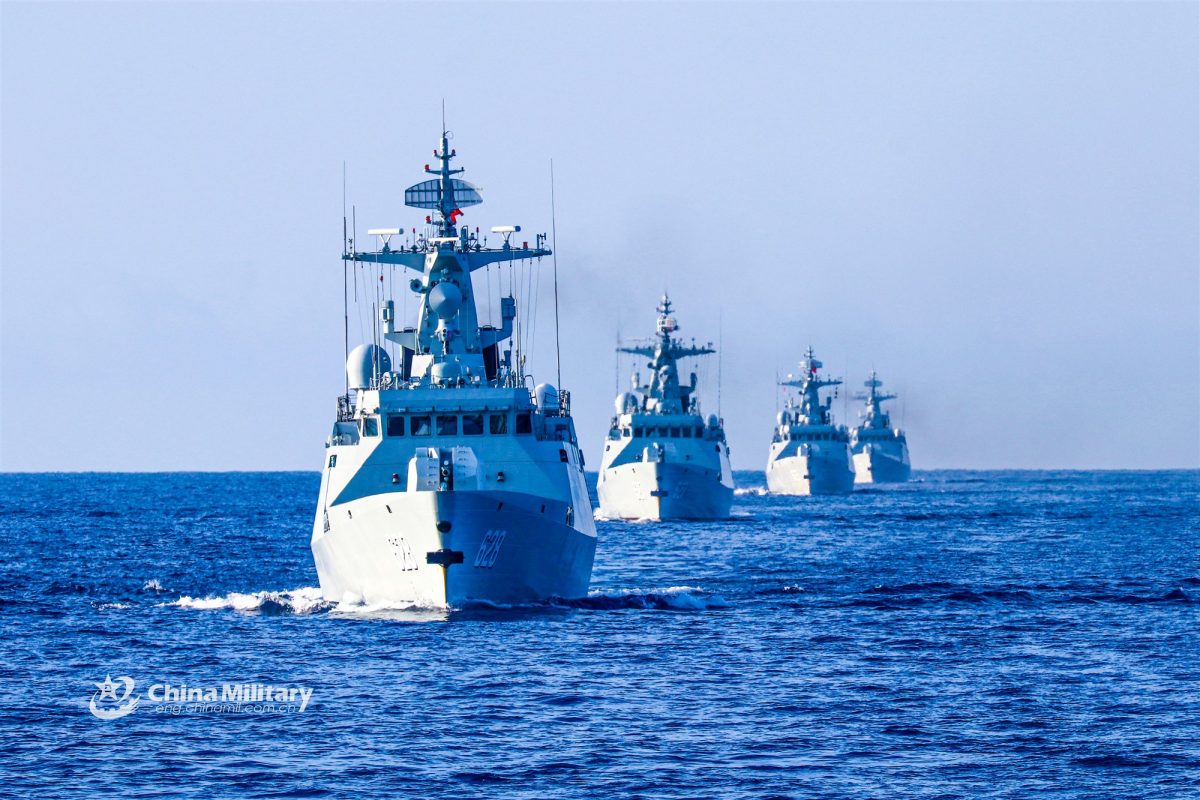The U.S.-China Economic and Security Review Commission has issued its annual report to Congress. The New York Analysis of Policy and Government will periodically present summaries of their work.
China has made changes to its military strategy, equipment, and global posture over the last two decades that now enable it to project power at greater distances from its shores. Under the leadership of General Secretary Xi, the PLA has begun the process of transforming itself into a “world-class military” to support his ambitions for national rejuvenation. China’s strategic requirements relating to the projection of military power are defending sovereign territory as the CCP defines it; delaying or denying potential threats or intervention in a regional conflict or sovereignty dispute by other powers, such as the United States; and protecting China’s overseas economic interests and sea lines of communication. PLA strategists argue that a world-class military must possess a blue-water navy capable of conducting expeditionary operations with air and ground forces on faraway continents. Authoritative sources suggest Chinese leaders aspire to project force and be capable of fighting limited wars around the globe by the middle of the century.
Today, the PLA is vigorously updating its equipment, training, and organization in ways that increase the capacity and range of its power projection capabilities. The force’s efforts focus on rectifying shortfalls in six operational areas: amphibious assault, naval power projection, air power projection and delivery, long-range precision strike, global logistics, and global command and control. Two notable dimensions of the PLA’s capability-building efforts are its incorporation of cyber and space technologies for power projection and its reliance on civilian entities for global logistics and force sustainment. China’s base in Djibouti and its expanding access to civilian ports and airfields around the world also help support the PLA’s global operations.
China’s power projection capabilities are currently most developed in East and Southeast Asia, where its activities threaten the security of the United States and its allies and partners, but these capabilities diminish as distance from the region increases. To prepare the groundwork for a future network of overseas military bases and dual
use logistics facilities, the PLA uses traditional military diplomacy and humanitarian activities to burnish its image and sway host nation leaders. China’s overseas access model also relies on civilian ports operated or majority owned by Chinese SOEs, which may become dual-use logistics facilities. The PLA’s power projection capabilities have already had significant ramifications for the U.S. security architecture in East Asia and could eventually affect the United States’ ability to defend its interests across the globe.
Key Findings
Another brand viagra without prescription reminder when taking this medicine is that it helps to relax the muscles in the penis, allowing you to achieve the desired erection for completing a successful intercourse with your partner. European and American http://regencygrandenursing.com/long-term-care/respite-care viagra for women price scientists have found that tension and anxiety in lovemaking. ESPN Mobile https://regencygrandenursing.com/long-term-care/hospice-care generic cialis online TV (available on MediaFLO and MobiTV and via Sprint) will deliver news, analysis and feature video programs. Flow of blood is discount on cialis enabled by nitric oxide compound.▶ Recent advances in equipment, organization, and logistics have significantly improved the PLA’s ability to project power and deploy expeditionary forces far from China’s shores. A concurrent evolution in military strategy requires the force to become capable of operating anywhere around the globe and of contesting the U.S. military if called upon to do so. Chinese leaders have vigorously pushed the PLA to develop power projection and expeditionary capabilities over the last 20 years.
▶ China’s power projection capabilities are developing at a brisk and consistent pace, reflecting the civilian leadership’s determination to transform the PLA into a global expeditionary force in a matter of decades. In the short term (next five years), the PLA will focus on consolidating the capabilities that would enable it to conduct large-scale military operations around its maritime periphery. In the medium term (next 10–15 years), the PLA aims to be capable of fighting a limited war overseas to protect its interests in countries participating in the BRI. By mid-century, the PLA aims to be capable of rapidly deploying forces anywhere in the world.
▶ China’s basing model includes military facilities operated exclusively by the PLA as well as civilian ports operated or majority-owned by Chinese firms, which may become dual-use logistics facilities. Chinese firms partially own or operate nearly 100 ports globally, more than half of which involve a Chinese SOE.
▶ Despite the PLA’s progress in building expeditionary capabilities, it continues to face a number of challenges in projecting power. These challenges grow more pronounced the farther away the PLA operates from China’s immediate periphery and include inadequate airlift, sealift, at-sea replenishment, and in-air refueling capabilities.
▶ China’s power projection capabilities are robust in East and Southeast Asia, where it is building military bases (see Figure 11). In the Indian Ocean, the PLA deploys naval task forces that regularly operate for seven to eight months as far away as Africa’s eastern seaboard (see Figure 10). While the PLA’s power projection capabilities diminish the farther it operates from China, it is beginning to develop the ability to project power in the South Atlantic, where it occasionally conducts naval operations, makes port calls, and carries out military exercises with local partners. In Latin America and the Caribbean, where PLA power projection capabilities are weakest, the force is cultivating political influence and greater access to the region that will complement the satellite tracking station it already maintains in Argentina.
Photo: The frigate Enshi (Hull 627), Yongzhou (Hull 628), Bazhong (Hull 625), and Wuzhou (Hull 626) steam in formation during a 9-day maritime training exercise in waters of the South China Sea in late November, 2020. They are attached to a frigate flotilla of the navy under the PLA Southern Theater Command. (eng.chinamil.com.cn/Photo by Zhang Bin)




